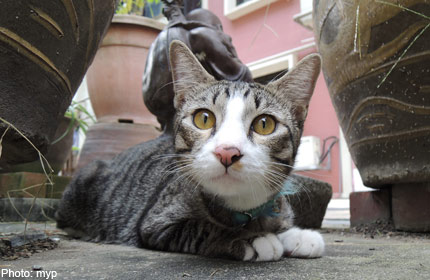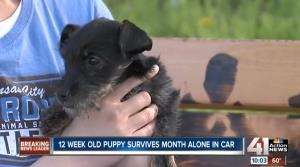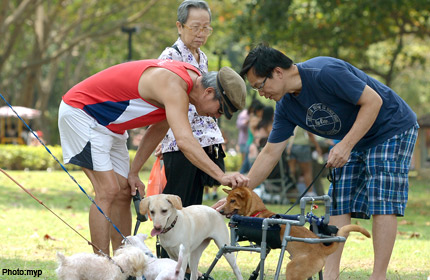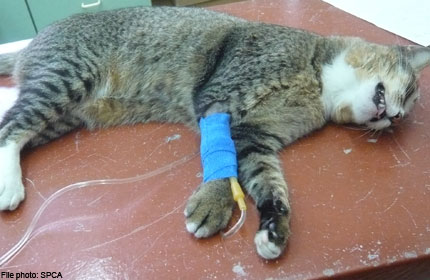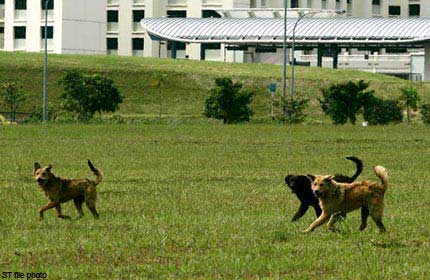
More than 9,500 cases of animal-related issues such as stray pets and alleged cruelty were reported to the Agri-Food and Veterinary Authority (AVA) last year, a spike of about 20 per cent from 2011.
The increase in feedback comes even as the AVA introduced a 24-hour hotline in August last year to respond to urgent cases such as animal abuse incidents more quickly.
Previously, people who called the hotline after office hours were directed to voice mail, and their feedback attended to on the next working day.
Now, the line is manned around the clock, and AVA officers will be on the ground within three hours to investigate alleged cruelty to animals, or if there is an immediate threat to people's safety.
More than seven in 10 of the 9,566 calls and e-mail messages last year were reports on stray animals or requests for the loaning and picking up of traps.
The AVA loans out free cages for the catching of monkeys.
"We also observed that cases about noise and smell nuisances from animals other than dogs jumped more than tenfold, from 48 cases in 2011 to 520 cases in 2012," said an AVA spokesman.
Last November, for example, The Straits Times reported on residents who wanted the AVA to remove Asian koels in their neighbourhoods, as the birds' early-morning calls disrupted their sleep.
The AVA said one reason for the rise in the number of cases is that it was appointed the lead government agency for animal-related issues in March last year.
Residents' concerns over crows and pigeons, for example, used to come under the purview of different agencies.
Now, the AVA handles all animal-related feedback and coordinates the response of the relevant agencies.
But animal activist groups here said they have also received more calls from concerned citizens to their own hotlines.
Ms Anbarasi Boopal, 30, director of the Animal Concerns Research and Education Society (Acres) Wildlife Rescue Centre, said that calls to the society's 24-hour hotline have risen from about 70 a month two years ago to about 300 calls a month now.
"More people are aware of animal issues now, especially because of social media. We put up rescue stories on our Facebook page, and that helps to raise awareness," she said.
We really should be more aware of pet abuse. The increase of pet abuse is horrible. i don't know why people just eant to abuse the pets. Why do they even buy the pets in the first place. They should not have bought the pet. The pet would probably be taken care by a loving owner. I hope those pet abusers get caught.






